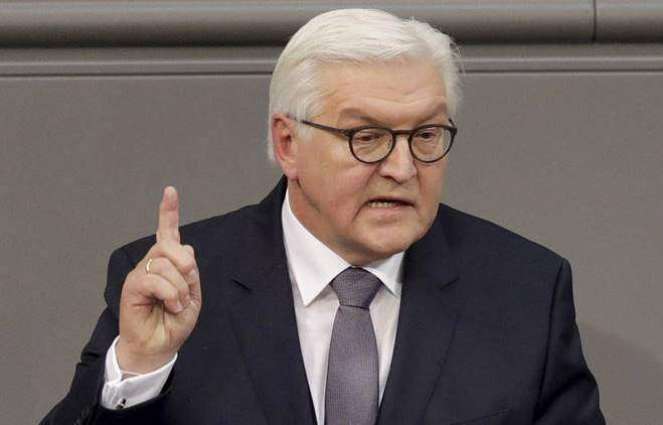German President Frank-Walter Steinmeier expressed confidence on Wednesday that Moldova would make every effort to avoid escalation of the longstanding conflict with the self-proclaimed Pridnestrovian Moldavian Republic (Transnistria)
CHISINAU (Pakistan Point News / Sputnik - 29th September, 2021) German President Frank-Walter Steinmeier expressed confidence on Wednesday that Moldova would make every effort to avoid escalation of the longstanding conflict with the self-proclaimed Pridnestrovian Moldavian Republic (Transnistria).
The remark came as the German president is paying a two-day visit to Moldova starting Wednesday. During the trip, the official will meet with the Moldovan leadership, including President Maia Sandu, as well as open a business conference, among other things.
"I respect that the sitting president and the government focus on promoting reforms in Moldova. I am sure that Moldova will take all steps so that the conflict with Transnistria does not deteriorate," Steinmeier told reporters.
The German official believes that the so-called small-steps policy will allow the parties involved to settle the conflict in the future and deescalate the situation.
Sandu, in turn, noted that the Transnistrian conflict settlement was a complicated process that requires searching for a peaceful and diplomatic solution.
The breakaway region, predominantly populated by ethnic Russians and Ukrainians, seceded from Moldova in 1990, fearing the latter's possible reunion with Romania. This resulted in an armed conflict which ended after a 1992 ceasefire agreement. Though the issue is not settled yet, de facto, Transnistria is out of Chisinau's control.
Efforts are currently being undertaken to settle the conflict in the "5+2" format, which in addition to Moldova and Transnistria includes Russia, the Organization for Security and Co-operation in Europe and Ukraine as mediators, and the European Union and the United States as observers.




